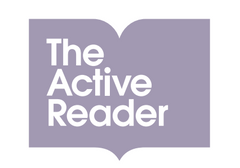What does preparing your child for kindergarten look-like?
What does preparing your child for kindergarten look-like?

Pre-kindergarten readiness is something that a lot of parents are thinking about these days. There’s no doubt in anyone’s mind that our teachers and classrooms have been greatly impacted by the pressures of COVID-19. For many children in their foundational years of development, the last year and a half has left room for various gaps to rear their ugly head. Developing a child’s love of learning and pre-kindergarten readiness skills has become particularly important within today’s educational landscape. Here’s a brief rundown on what these skills are, and how we can support their development before a child enters a classroom.
Self-Confidence
A child’s self-confidence is one of the most important pre-kindergarten skills because it really sets the tone for their social emotional connection with the educational space. If they feel confident in themselves, are ready to take risks, and understand that it’s ok to fail, they will be more likely to develop positive relationships with their teachers, peers, and academic environment.
Social Skills
Social skills look different from child to child, so the concept can be considered somewhat subjective. However, there are some foundational social skills that we can help our little ones to work on and develop before they enter the classroom: participating in verbal and non-verbal gestures, understanding and following basic instruction, and communicating and engaging in comfortable social spaces. This last one, really has to be centred around your child’s comfort level. A more introverted or observant child may need longer to warm up and feel relaxed, but this does not mean there is a weakness in their social development. It just means they’re more aware and sensitive towards their surroundings. Additionally, working on concepts like waiting their turn, sharing, and simple social cues like saying please and thank you, really go a long way to set a child up for success in the classroom.
Language Development
Language development for children occurs in stages, and there are ways to support the process of language acquisition. Giving your child space to listen and then respond to you when you’re speaking is a great way to mimic conversation cues and help them to develop a more natural back and forth dynamic. Playing games like Simon Says or Eye-Spy are great ways for your child to engage with objects and vocabulary that’s in the world around them. The more vocabulary a child understands and is able to use, the easier they’ll be able to navigate the ins and outs of the primary classroom.
Self-Regulation
Self-regulation can be one of the most difficult tasks for a young learner, especially in a classroom with between 20 to 30 other kinders. Self-regulation consists of skills and strategies that involve a child’s ability to control their impulses, focus and refocus their attention on new tasks, regulate their emotions, and calm themselves down after a period of excitement or feeling upset. While the ability to apply these skills may look different in the home versus the classroom, it’s important that children are equipped with the basic tools to help guide this learning process. Routine and consistency, breathing exercises, and positive reinforcement are all ways to reinforce self-regulation skills.
Fine Motor and Pre-Writing Skills
Working on your child’s fine motor skills can be both exciting and creative. From throwing a ball to painting or pouring water into different sized jars, strengthening a child’s hands and fingers is a great way to get them ready for the kindergarten classroom. Eventually, they’ll be holding a pencil and writing letters or cutting up paper during craft time, so preparing these small but important muscles allows your child to feel confident about participating in these more focused activities.
Excitement to Learn
This last skill is all about a child’s desire to learn new things about the world around them. When a child asks questions about things they see, hear, or feel, it’s important to take the time to give them an explanation. They need to feel as though their questions are valid and being taken seriously. Providing explanations can begin at a very young age because, the truth is, even babies are observant enough to understand various concepts, and even though they may not be able to respond, they are still hearing and processing. The classroom is a space for discovery and inquiry so developing a child’s love and excitement towards learning and asking questions is an important piece in preparing them for the kindergarten classroom.
Our Active Reader cards offer over 200 learning opportunities to engage your children in active skill development. We want to support parents with the tools and strategies that will help set their children up for a positive educational experience and independent life-long learning.
